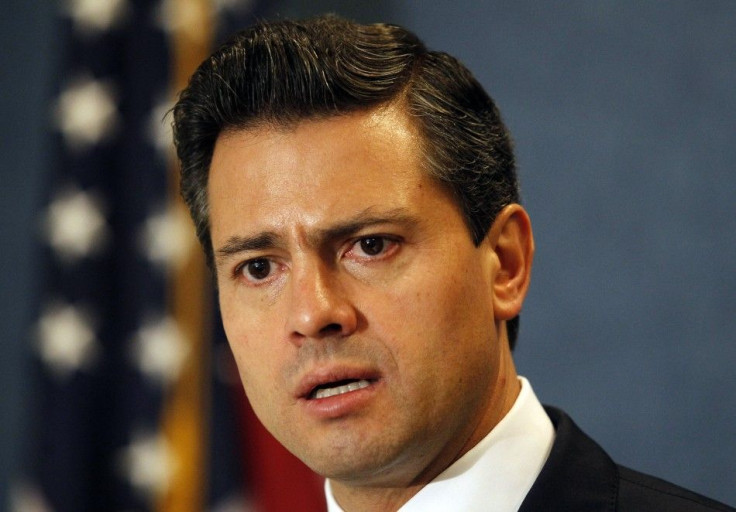Enrique Pena Nieto Returns Presidency To Mexico's PRI: Preliminary Count

Mexico's Institutional Revolutionary Party, or PRI, counted every president of the country between 1929 and 2000 as one of its members, and it may again soon, as an official preliminary count of the votes indicates its candidate, Enrique Pena Nieto, won the nation's presidential election on Sunday.
Two of Pena Nieto's three main opponents have conceded the election, but the third -- Andres Manuel Lopez Obrador, the candidate of the Party of the Democratic Revolution, or PRD -- told his supporters that he would wait for a final count, according to the Associated Press.
In 2006, Lopez Obrador led hundreds of thousands of supporters to Mexico City's streets when he narrowly lost the presidential election to Felipe Calderon, the candidate of the National Action Party, or PAN, AP noted. And it was feared he would go the same route this time around, AP pointed out.
The Federal Electoral Institute's preliminary count showed Pena Nieto of the PRI finished first with about 38 percent of the vote, Lopez Obrador of the PRD placed second with about 31 percent, and Josefina Vazquez Mota of the PAN took third with about 25 percent, AP reported.
In early exit polls released by the Milenio and TV Azteca networks, Pena Nieto was first with about 40 percent of the vote, Lopez Obrador was second with about 30 percent, and Vazquez Mota was third with about 23 percent, AP said.
Enrique Pena Nieto appears to be accomplishing what many thought would never happen again: the return of a strong and dynamic PRI, Eric Olson, associate director of the Mexico Institute in Washington, told AP. The question: How will they govern?
The PRI was helped in the presidential and legislative election campaigns culminating on Sunday by Mexico's lackluster economy and the country's continuing drug war, which, as AP said, has killed about 50,000 Mexicans during Calderon's six-year term.
© Copyright IBTimes 2025. All rights reserved.






















